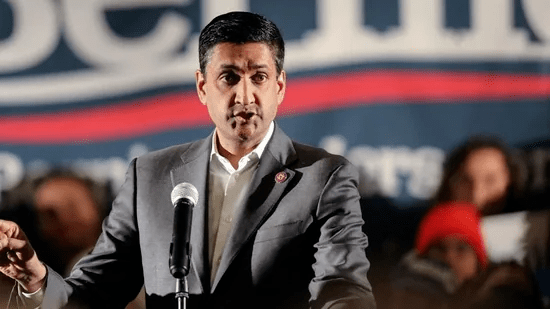The recent US House of Representatives vote to waive the CAATSA sanctions on India is the most significant vote since the civilian nuclear agreement, according to a powerful Indian-American Democratic Congressman. He claims that US President Joe Biden will expedite the waiver because he has the “political mileage” and support of 300 Congressmen.
The US House of Representatives approved an amendment to a law in July that grants India a particular exemption from harsh CAATSA sanctions in exchange for its acquisition of the S-400 missile defence system from Russia. The amendment, which was written and sponsored by Indian-American Congressman Ro Khanna, calls on the Biden administration to exercise its power to grant India a CAATSA waiver in order to help deter aggressors like China.
In July, the US House of Representatives approved a legislative amendment authorising an India-specific waiver from punitive CAATSA sanctions in exchange for India’s purchase of Russia’s S-400 missile defence system. The amendment, authored and introduced by Indian-American Congressman Ro Khanna, urges the Biden administration to use its authority to grant India a Countering America’s Adversaries Through Sanctions Act (CAATSA) waiver in order to deter aggressors such as China.
“The relationship between the United States and India has never been more critical.” When an expansionist China meets an expansionist Russia, I believe this will be a defining relationship of the twenty-first century. And we needed to send a clear message to India that America regards this relationship as extremely important,” Khanna said in an interview with PTI.
The legislative amendment was approved by voice vote last month as part of an en bloc (all at once) amendment to the National Defense Authorization Act during floor debate (NDAA). Before it can be sent to President Biden for signature, the legislation must be passed by the United States Senate.
“Having the threat of sanctions looming over India undermines our ability to develop a strong strategic relationship.” It jeopardises the ability to strengthen the QUAD with Australia and Japan,” said the 45-year-old Democrat.
CAATSA is a stringent US law that allows the US administration to impose sanctions on countries that buy major defence hardware from Russia in response to Russia’s 2014 annexation of Crimea and alleged meddling in the 2016 US presidential elections.
According to him, the bipartisan vote, which received the support of 300 members of Congress, is the most significant vote for the India-US relationship.
“So, having 300 members of Congress tell President Biden to waive the sanctions is a huge show of support for that relationship.” It’s the most historic vote in the House since the civilian nuclear deal with India. And it doesn’t really matter whether it’s ultimately in the NDAA or in the Senate, because President Biden has the ultimate authority, and this gives him the political capital to waive off those sanctions,” Khanna explained.
Khanna, who was part of a high-profile delegation led by US House Speaker Nancy Pelosi to Taiwan recently, stated that the Biden administration supported his legislative amendment passed by the House.
“It would never have passed the House if the White House had not expressed support.” Without the support of House Foreign Affairs Committee Chairman Greg Meeks, the amendment would never have been ruled in order, voted on, or passed. “We spoke with the State Department’s National Security team, and they appreciated it,” he said.
When asked why Biden hasn’t issued the national interest waiver to India yet, Khanna said the president is dealing with a slew of international and domestic issues.
“He has to deal with Ukraine.” He’s dealing with China, and he’s probably interested in watching the process unfold in the Senate. But this was a significant step toward him having the wave,” Khanna observed.
He stated that the administration recognises the strategic significance and the need to strengthen the defence relationship with India.
“The administration recognises that there will be times when we disagree, and we want India to condemn the Ukrainian invasion, but that we must continue to forge ahead in building a strong relationship that recognises the importance of human rights,” he said.
Khanna has also proposed that India become the sixth member of the Nato plus arrangement in order to strengthen defence ties.
“You currently have NATO plus five. Essentially, Australia, South Korea, New Zealand, Israel, and Japan receive expedited arms, as does NATO. And I’m working on adding India to the list. “I had proposed that earlier, and this amendment gives it more traction,” he added.
